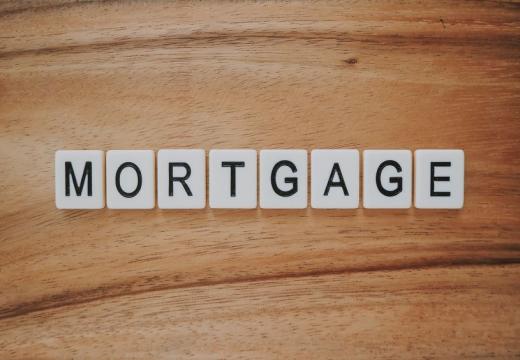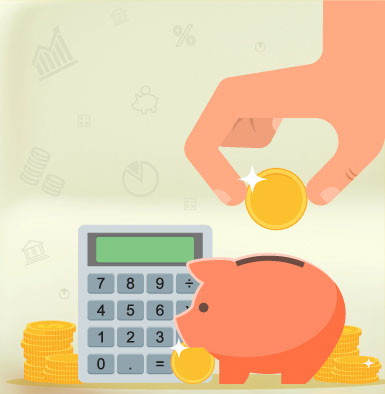Step By Step Guide On How To Apply For A Mortgage in Ghana
Step By Step Guide On How To Apply For A Mortgage in Ghana
- by PropHunt Admin
- On 17-06-2022
- at 4:21 PM

We provide a complete step-by-step guide on the process of getting a mortgage in Ghana approved. The article explains what a homeowner needs to do to warrant a mortgage underwriter to approve a home mortgage loan in Ghana.
This is because a mortgage is the best ticket to becoming a homeowner in Ghana. For the vast literate majority of Ghanaians, a mortgage loan is necessary to purchase your first home.
Here’s what you should know about these crucial steps of applying for a home mortgage loan in Ghana.
What can you afford?
Before you kick start your search for a new home, it is important you become aware of how much you can afford to pay in the mortgage. This will allow you to spend your valuable time looking at productive homes which are within your predetermined price range.
Knowing this will help you estimate an accurate downpayment for your mortgage processing. Most lending institutions will usually require a down-payment of at least 5 percent to 10 percent of the home price.
Find out What is Down Payment and How Does it Affect Your Mortgage Approval?
However, mortgage lending institution policies may vary from time to time.
General requirements for applying for a mortgage in Ghana
-
Earn a minimum net salary monthly
-
Be permanently employed
-
Be over 21 years and under 60 years at the time of applying
-
Complete a Home Loan Application form
-
Proof of income flow and employment status
-
Proof of Identity – Passport, Drivers licence, Voters Identity Card
-
Proof of Residence
-
Offer letter from the developer
-
Property title documents (Deed of assignment)
-
A Valuation Report from an approved Appraiser
The key process of applying for a mortgage in Ghana
You’ve finally decided to buy your first home. Now the question is, how do you apply for a mortgage? Preparation is very important in financial transactions because after your purchase offer is accepted, you need to get your mortgage application processed as quickly as possible.
Read Also: Best Mortgage Banks for first time homebuyers in Ghana
Getting a mortgage in Ghana has now become a simple process. What you need to do is provide basic documents like identity and residential proof, income proof, complete a home loan application form, bank statements, salary pay slips, and property documents.
Here are the complete steps to take when applying for a mortgage in Ghana:
Step 1. Choose a mortgage lender
Choose the best mortgage lender you wish to work with to start the loan application process. You will also have to submit all your income documents as per your profile together with a copy of property documents. On the basis of these documents, the bank will sanction your loan application and as well as the technicalities of your home buying processes. That includes a valuation report for the mortgagee property.
Step 2. Complete a mortgage application form
After choosing the lender you will receive and complete a mortgage loan application form. You'll have to sign the loan agreement with the bank. Depending on the mortgage lender, you may be able to apply in person, by phone or online.
All mortgage lenders in Ghana require you to provide information about yourself and anyone else, such as a spouse or partner, who may sometimes be listed as a co-borrower on the mortgage. You have to carefully fill out the application as completely and accurately as possible.
Step 3. Payment of processing fees
You'll be asked to pay a loan processing fee. It usually depends on the lender chosen because the loan processing fee varies from lender to lender. The fee needs to be paid at the time of the loan application. However, some lenders do reduce the fee amount or even waive it entirely, so do check with your lender prior to paying up.
Step 4. Lender begins loan processing
At this stage, about 90 percent of the work will now be done by the mortgagee (lender) because you might have already submitted all the documents to the lending institution for verification and processing. The lender will confirm all stated income flow by the mortgagor (borrower).
These include field verification and personal verification. Lender will verify the borrower’s personal information, including conducting a residence and employment check. The mortgagee will also have a one-on-one personal discussion with the homebuyer. Where the lender will evaluate your application and ascertain your repayment capacity.
Step 5. The lender underwrites the loan
Here the lender will do a credit appraisal on your loan application through the loan underwriting process to measure the risk of lending money to you on this property. The underwriter will also determine the exact terms and conditions of your loan, including the loan amount being sanctioned, the rate of interest, amortization schedule etc. This is done to ascertain the possibility of default on the repayment plan.
Find out What To Do When You Default Mortgage Payment.
The lender will find answers to What’s your loan-to-value ratio (LTV)? Do you have the cash flow to service the monthly payments? How good is your credit history? Do you have a history of making payments on time? Is the home appraised accurately?
Step 6. Offer letter issuance
The mortgage lender will now issue you an offer letter, pending acceptance. The offer letter will require the following details – The amount of loan sanctioned, the rate of interest, and the loan tenure for the payment of the sanctioned home loan amount.
Step 7. Signing of loan agreements
The loan agreement is to be signed by the mortgagor, and post-dated cheques are required to be submitted as per the loan agreements. At this stage, you have to examine the closing cost carefully and other related fees to compare it against the Loan Estimate form to see if any of the quoted fees or numbers have changed.
Remember that all of your cash savings cannot be used as your down payment. There are last-minute closing costs, such as taxes, legal fees, appraisal fees, moving expenses, and home insurance to pay before you are finally in your new home. The time to budget for those end expenses is now.
Step 8. Loan disbursement
Finally, upon completion of all documentation and related formalities, the loan is disbursed, as per the conditions mentioned in the loan agreement either upfront or in tranches (for an under-construction property), as per requirement.
Summary
It is entirely possible that your application is rejected at the first instance, which can be due to non-fulfilment of eligibility criteria or on account of incomplete documentation. Make sure your application is accurate in all respects. With most lenders in Ghana, processing fees are not refundable, so ensure you do your background check prior to application.

 French
French




